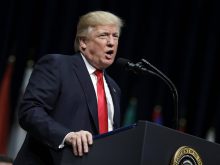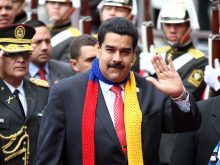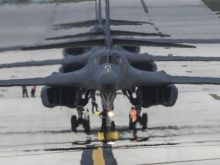Few government organizations have been engaged in violation of the US citizens’ constitutional rights for as long a time and against as many individuals as the Federal Bureau of Investigation (FBI). Seldom has there been…
Category: Head Stories
Considering that a nuclear conflict over North Korea appeared imminent in recent weeks, the winter Olympics at Pyeongchang, South Korea, is a most welcome distraction – and might even deter a major war on the…
Around 6 am GMT the Syrian air defense shot downed an Israeli fighter jet that was attacking the country. There is now the chance that a larger war will ensue. (The whole story behind this…
US warplanes and artillery batteries carried out an unprovoked massacre of up to 100 pro-government troops in the northeastern province of Deir Ezzor Wednesday, signaling the initiation of a new and far more dangerous stage…
The retrograde Donald Trump administration is planning a military coup in Venezuela to oust the socialist government of President Nicolas Maduro. U.S. Secretary of State Rex Tillerson, speaking at the University of Texas prior to…
… All Our Priorities A Russian pilot has been killed by US-armed terrorists in Syria. The Ron Paul Institute‘s Daniel McAdams writes the following about this new development: “The scenario where a US-backed, US-supplied jihadist group in Syria uses US…
In his 2018 State of the Union Address, president Trump expresses concern regarding both the opioid crisis as well as the dramatic increase in heroin addiction in America, without analyzing the underlying causes. Trump State…
Ever since 1948, the US Government’s foreign policies have been consistently focused upon breaking up the Soviet Union and turning its Warsaw Pact allies against the Soviet Union; and, then, once that would be (and…
MOSCOW (Reuters) – The delivery of oil and oil products to North Korea should not be reduced, Moscow’s ambassador to Pyongyang was cited as saying by RIA news agency on Wednesday, adding that a total…
The Trump administration has drawn Turkey deeper into the Syrian conflict by announcing a policy that threatens Turkey’s national security. Washington’s gaffe has pitted one NATO ally against the other while undermining hopes for a…










